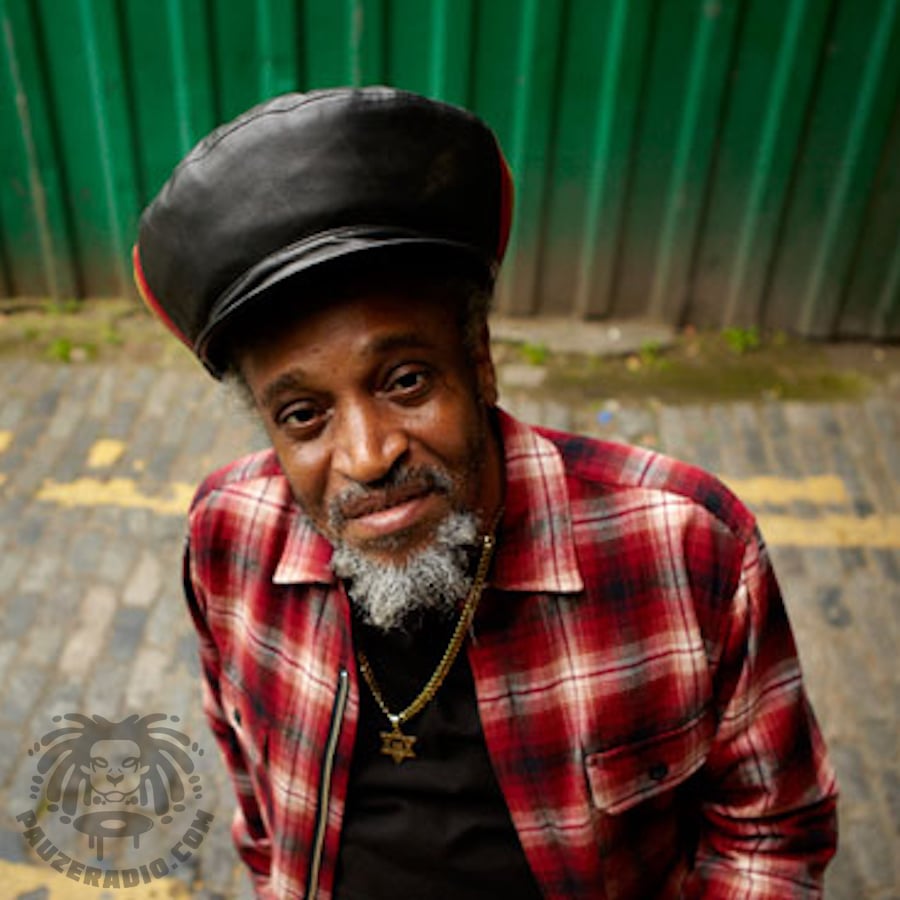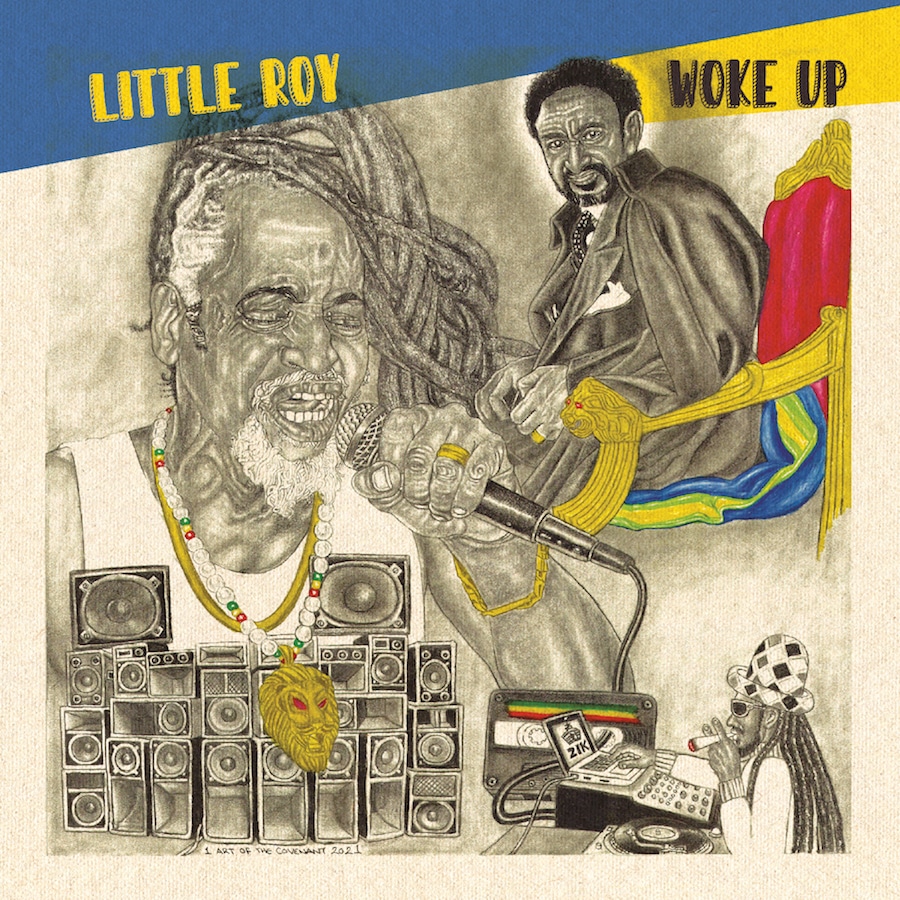
Little Roy
Little Roy Biography:
Little Roy, the reggae artist born Earl Lowe on February 25, 1953, in Witfield Town, Kingston, Jamaica, is a musical force known for his distinctive voice, socially conscious lyrics, and enduring impact on the reggae genre. His journey from the vibrant streets of Kingston to international recognition is a testament to his unwavering passion for music and his commitment to spreading messages of love, unity, and social justice through his art.
Growing up in the heart of Jamaica’s music scene, Little Roy was exposed to the rich sounds of ska and rocksteady that permeated the streets of Kingston during the 1960s. These early influences laid the foundation for his deep-rooted connection to music and ignited a flame that would propel him into a lifelong career as a reggae icon.
In the late 1960s, as reggae began to emerge as a distinct genre, Little Roy found himself drawn to its rhythmic beats and soulful melodies. He honed his vocal skills, inspired by the likes of Bob Marley, Dennis Brown, and Alton Ellis. Little Roy’s voice, however, possessed a unique quality that set him apart – a raw, emotive power that could convey a range of emotions from joy to sorrow.
Little Roy’s breakthrough came in the early 1970s when he recorded his first single, “Tribal War,” at Studio One, the legendary recording studio founded by Clement “Coxsone” Dodd. The song, with its infectious rhythm and socially conscious lyrics, quickly gained popularity in Jamaica and beyond. “Tribal War” addressed the political and social tensions of the time, striking a chord with listeners who were grappling with the challenges of a rapidly changing society.
As Little Roy’s reputation grew, so did his collaboration with other prominent figures in the reggae scene. He worked with producers like Prince Tony Robinson and Lloyd “Matador” Daley, creating a string of hits that solidified his status as a rising star in the reggae world. Tracks like “Hard Fighter” and “Christopher Columbus” showcased his versatility, blending roots reggae with elements of rock and soul.
The 1970s were a pivotal decade for reggae, with the genre gaining international recognition. Little Roy’s music, deeply rooted in the cultural and political context of Jamaica, resonated with audiences worldwide. His live performances became legendary, characterized by his charismatic stage presence and the authentic energy he brought to every show.
In 1977, Little Roy released his debut album, “Tribal War,” named after his breakthrough single. The album featured a collection of tracks that showcased his vocal prowess and lyrical depth. Songs like “Bongo Nyah” and “Festival Wise” demonstrated his ability to seamlessly blend traditional reggae sounds with contemporary influences, further establishing his unique artistic identity.
Despite his growing success, Little Roy faced the challenges that many artists encountered during that era. The music industry was evolving rapidly, and the political climate in Jamaica was tumultuous. Nevertheless, he remained steadfast in his commitment to using music as a tool for social change.
The 1980s brought new opportunities and challenges for Little Roy. The rise of dancehall music presented a shift in the reggae landscape, but he continued to stay true to his roots. During this time, he collaborated with producers like Jah Screw and Lloyd “King Jammy” James, adapting his sound to the evolving musical landscape without compromising his authentic reggae spirit.
One of Little Roy’s notable achievements in the 1980s was his collaboration with the British band Massive Attack. He lent his distinctive voice to their song “Safe from Harm,” which became a critical and commercial success. This collaboration marked a significant crossover moment for Little Roy, introducing his music to a new generation of listeners outside the reggae community.
As the 1990s unfolded, Little Roy remained a respected figure in the reggae scene, continuing to release music and tour internationally. His enduring appeal was a testament to the timeless quality of his sound and the relevance of his socially conscious lyrics. Albums like “Longtime” and “Children of the Most High” showcased his ability to stay true to his roots while exploring new musical territories.
In the new millennium, Little Roy’s legacy continued to thrive. He embraced the digital era, reaching a global audience through online platforms and social media. His classic hits, such as “Come As You Are” and “Prophet,” gained new life as younger generations discovered and appreciated his contribution to reggae music.
Little Roy’s influence extended beyond the realm of music. He remained actively engaged in social and community initiatives, using his platform to advocate for positive change. Whether through benefit concerts, charity work, or outspoken commentary on social issues, he exemplified the role of the artist as a catalyst for transformation.
As the years passed, Little Roy’s status as a reggae legend solidified. Awards and accolades came his way, acknowledging his enduring impact on the genre. The Order of Distinction, one of Jamaica’s highest honours, was bestowed upon him in recognition of his outstanding contribution to reggae music and culture.
Little Roy’s life and career are a testament to the power of music to transcend boundaries and bring people together. His journey from the streets of Kingston to international acclaim reflects the universal appeal of reggae and its ability to convey messages of love, unity, and resistance. Little Roy’s legacy lives on not only in his recorded music but also in the hearts of those who continue to be inspired by his artistry and commitment to creating positive change through music.
Do you need a biography, review or press release? Book our services for your latest release here.
Little Roy Biography by Gav Pauze / Pauzeradio PR Services (31st January 2024)




